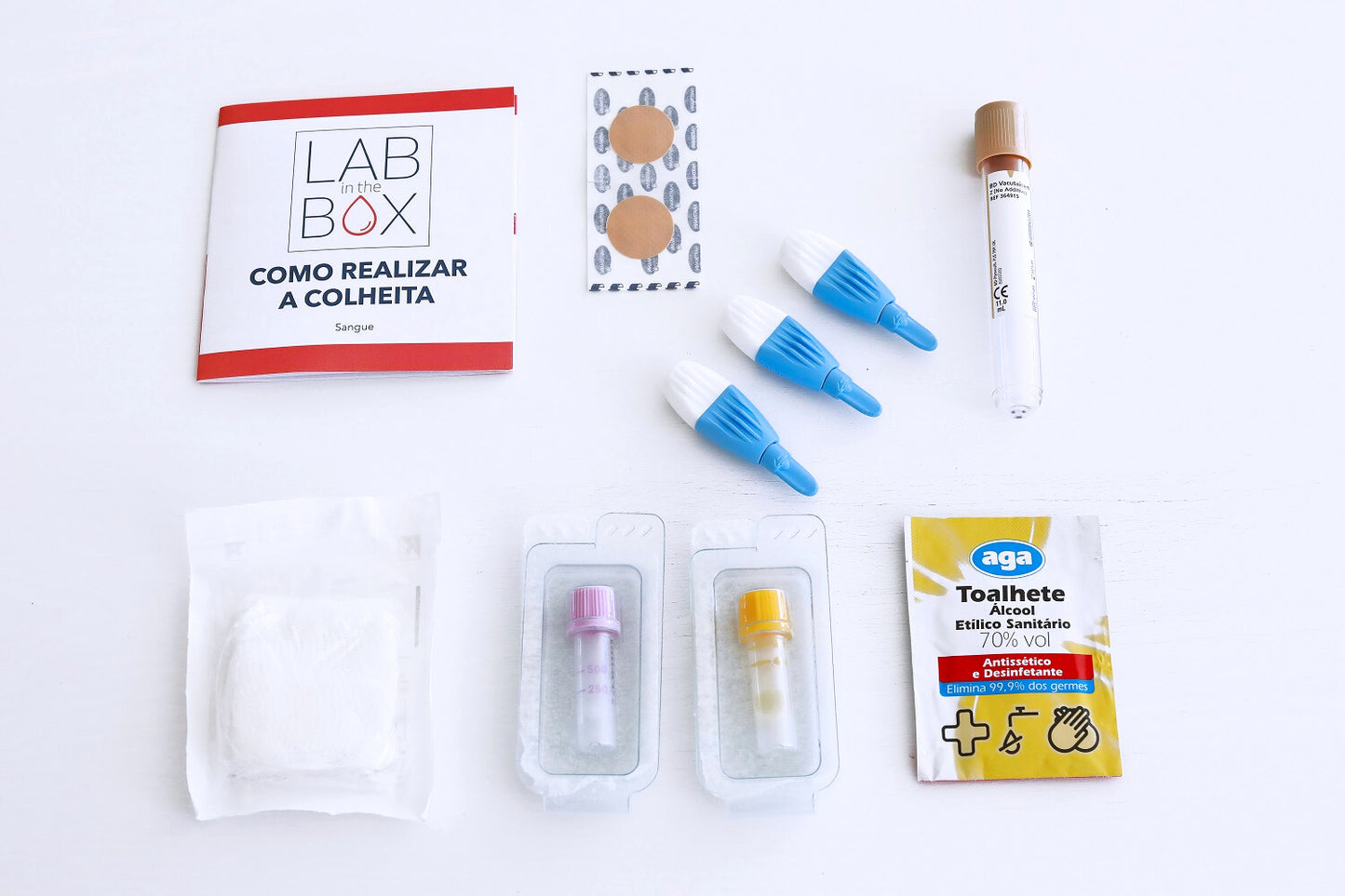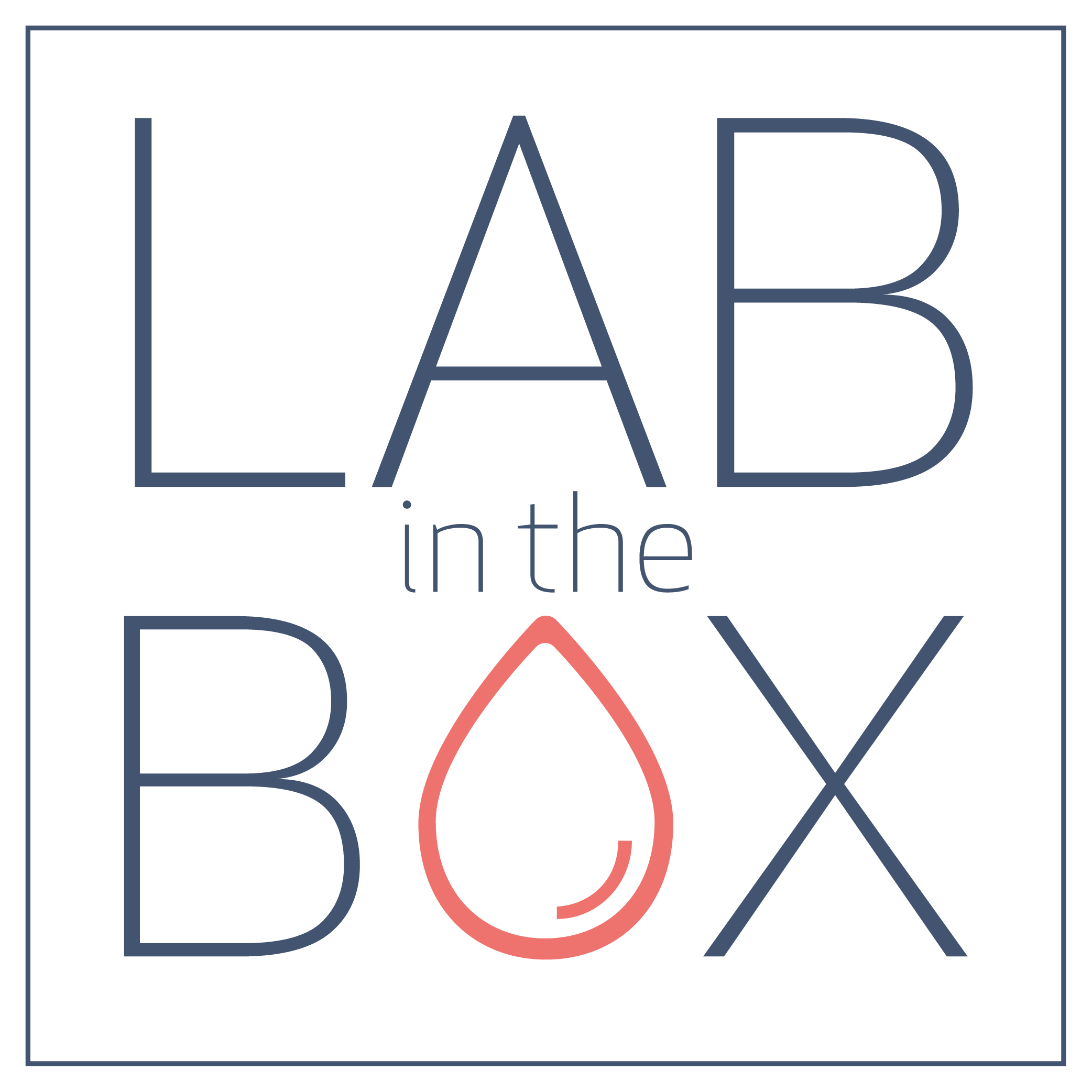Menopause
Menopause
The Menopause Test measures the levels of key hormones in the female reproductive cycle. These hormone levels are crucial to the menopause process and can be particularly useful for those taking or considering hormone replacement therapy.
Unable to load pickup availability
This test kit allows you to:
This test kit allows you to:
🩸 A finger prick
🏠 Easy at-home blood collection kit
🧪 Lab accurate results
🕐 Results sent by email in 24h - 48h
What does it measure:
What does it measure:
Estradiol, Progesterone.
What is included in your test:
What is included in your test:
☑️ The test kit includes all the necessary materials to collect the blood sample and shipment
☑️ Pre-paid shipping
☑️ Detailed instructions and training video
☑️ Digital results;
☑️ Health professional support.
When to test
When to test
- Collection must be carried out before 11:30 am on a Monday, Tuesday, Wednesday or Thursday and returned the same day by post to a delivery point or by scheduling a collection before 12 pm.
Amount of blood to be collected
Amount of blood to be collected
You must use the yellow-capped collection tube and collect a minimum amount of blood of 400 µL.
Fast
Fast
Fasting is not necessary to perform this test.


Who should take the test?
- Women who have not had a period for at least 12 months;
- Women with diagnosed menopause.
Menopause is accompanied by many changes in the body due to the drastic decrease in estrogen and progesterone levels. These changes can include bone loss, difficulties in regulating body temperature, decreased sex drive, sleep disorders, memory problems and changes in metabolism.
Estradiol and progesterone testing is an essential tool for monitoring your hormonal health after the menopause transition. This test is intended for those who want detailed information about their hormone levels and those who are considering or taking hormone replacement therapy. Understanding your estradiol and progesterone levels can help you better manage your menopause symptoms and make informed decisions about treatment.
Symptoms related to postmenopausal hormonal changes include:
- Fatigue
- Sleep problems
- Weight gain
- Memory problems
- Difficulty concentrating
- Swelling
- Heat waves
- Vaginal dryness
- Low sexual desire
Knowing your hormone levels can help you navigate the symptoms associated with postmenopause and make necessary dietary or lifestyle changes to prevent changes in metabolism, bone loss, decreased sex drive, sleep problems, and memory issues.
Tested Parameters
Estradiol
Estradiol is the main form of estrogen, produced by the ovaries, and is one of the main sex hormones responsible for ovulation, and is vital for reproductive health and pregnancy. After menopause, estradiol levels decrease significantly. Estradiol also plays an important role in bone development, secondary sexual characteristics associated with female sex, and in the functioning of the brain and reproductive system.
Progesterone
Progesterone helps maintain the endometrium (the lining of the uterus) and supports pregnancy. As menopause approaches and ovarian function declines, progesterone production decreases significantly.


